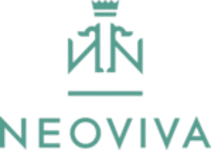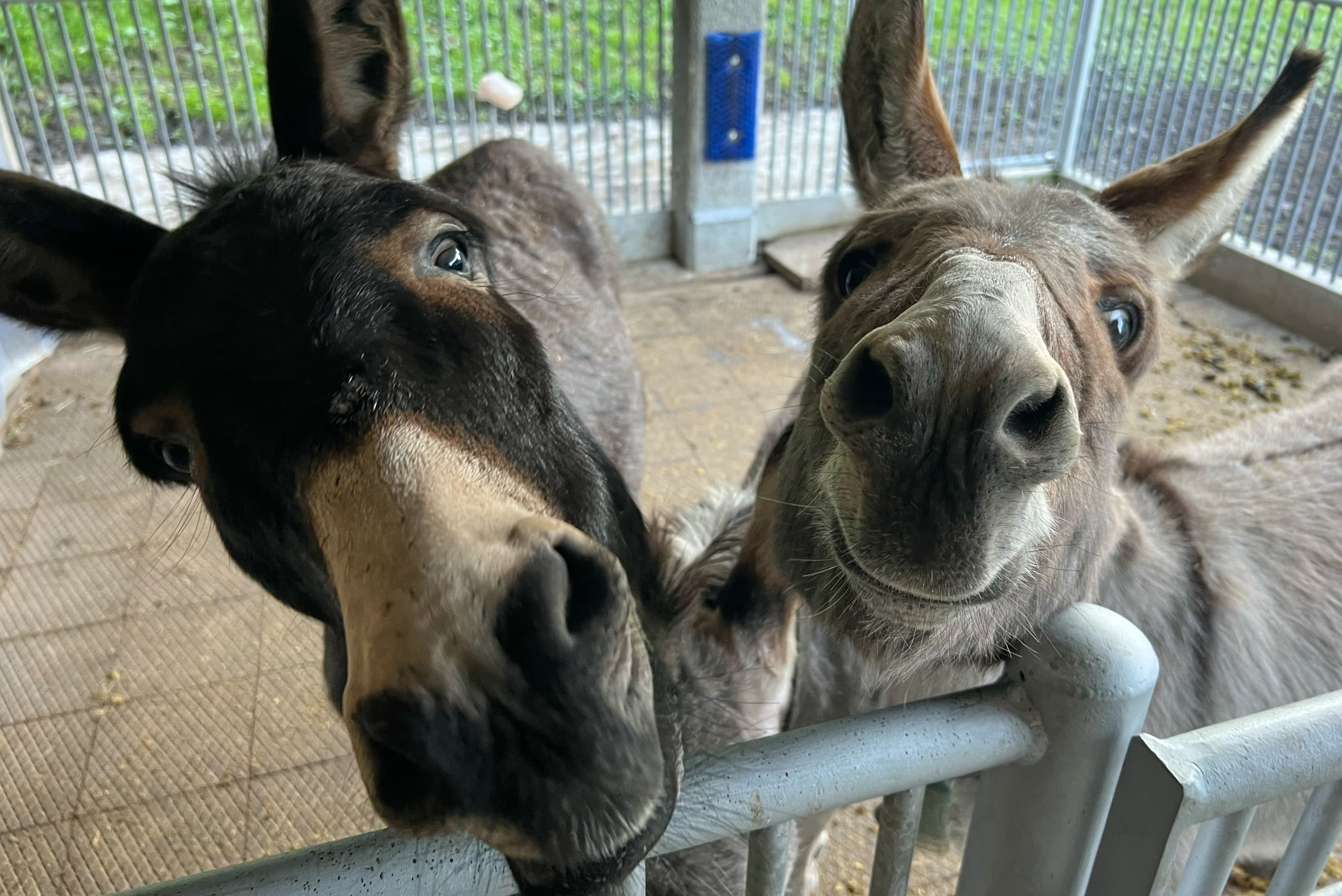When we think of donkeys, we often picture them piled high with goods, transporting huge loads over rough and mountainous terrains, not as therapy animals. In animal-assisted therapy (AAT), dogs and horses usually steal the limelight.
But a quieter, more contemplative creature has stepped into the spotlight in recent years. With their soulful eyes, slow movements, and gentle personalities, donkeys are potent allies for people healing from trauma, mental health issues, and addiction.
In this blog, we explore why donkeys are used in therapy, how they differ from horses, and how they support people in addiction recovery. We also reveal some fun facts to remind us just how special these animals really are.
Some Common Misconceptions About Donkeys
Let’s clear up some common misconceptions about donkeys. They are definitely not just small horses with long ears. Donkeys are a different species altogether, with different instincts, behaviours, and emotional responses.
Stubbornness is all too often a misinterpretation of a donkey’s cautious behaviour; their reluctance to follow commands comes from a position of self-protection and safety rather than from obstinacy. Donkeys have a stoic nature and very subtle body language when it comes to showing pain or fear, which can incorrectly portray them as being unresponsive.
Donkeys are also commonly mischaracterised as being stupid when, in fact, they are highly intelligent animals capable of learning and adapting. It might surprise you, but their rate of learning can be as quick as a dog or a dolphin, both of which are deemed astute and brilliant animals. Donkeys can, for example, quickly learn the sound of the door latch to the feed being opened or learn to reverse up to their owners to get their bottoms scratched. Once, our three donkeys escaped from the paddock and we found them on the main street, much to the delight of the drivers!
Donkeys are renowned for their independence and resistance to force making them ideal for leadership training. Participants learn that effective leadership isn’t about coercion, but about building trust, patience and clear communication.
At NEOVIVA, in addition to participating in animal-assisted therapy sessions, our three Donkeys, Julie, Janusch, and Lorenzo, are being trained to assist our clients on picnics, allowing clients to groom and care for them, and take them for a leisurely stroll through the countryside.
How are Donkeys Different from Horses?
Cautious Thinkers: Donkeys tend to be more reflective and less reactive than horses. When faced with a perceived threat, a horse’s primary instinct is to flee, which can manifest as bolting or running. Conversely, a donkey shows a limited fear response, often stopping, assessing, and then deciding whether to move. This thoughtful nature helps create a calm and steady presence in therapy sessions because they startle much less easily than horses.
Deep Bonds: Donkeys are sentient, social, and naturally inquisitive creatures. Well-known for their friendly and gentle nature, they form strong bonds with humans and other animals. Donkeys are generally affectionate and enjoy human interaction. In donkey-assisted therapy, individuals learn how to read the body language of the donkey to build skills in empathy, self-awareness, and communication.
Low-Stress Response: Because of their stoic demeanour, donkeys don’t pick up on anxiety and mirror it in the same way horses might. They tend to stay grounded, which helps regulate the emotional atmosphere around them. This attribute makes them ideal for working with clients who are feeling overwhelmed or anxious.
Donkeys in Animal-Assisted Therapy
Animal-assisted therapy (AAT) uses interactions with animals to support emotional healing and behavioural change. Donkeys, with their gentle nature and emotional sensitivity, are found to be increasingly valuable in settings such as:
- Mental health clinics
- Schools for children with special educational needs
- Dementia care homes
- Trauma and addiction recovery centres
In a therapeutic setting, the donkey’s slow, steady approach to interaction makes them an ideal companion for people who are learning how to reconnect with themselves and others.
At some therapy farms, simply sitting in a paddock with a donkey nearby can induce a grounding, almost meditative experience. Donkeys don’t demand affection or attention. They are just quiet observers who offer their presence freely once they feel safe.
How Donkeys Help in Addiction Recovery
In the context of addiction recovery, donkeys can support clients in several profound ways:
Regulating Emotion: People in early recovery often experience intense emotions, such as anger, sadness, anxiety, or fear. Donkeys have a calm, grounding energy that promotes safety and stability and encourages mindfulness, a key tool in managing cravings and emotional triggers. Being in the presence of a donkey helps individuals slow down, breathe, and stay present.
Creating Routine: Donkeys require care. Feeding them, cleaning their shelter, and brushing them all adds structure to the day. For someone rebuilding a life after addiction, these simple routines can foster responsibility, consistency, and a sense of purpose.
Non-verbal Feedback: Donkeys are incredibly intuitive. They can sense agitation or nervous energy and may respond by slowly backing off. Likewise, they approach when someone is calm and gentle. This sensitivity provides real-time, non-verbal feedback to clients about their own state of mind without judgment.
Restoring Trust: Many people in recovery have experienced difficulty in relationships. Earning a donkey’s trust can serve as an emotional breakthrough. It teaches patience, respect, and the value of showing up consistently for another being.
Promoting Connection: One of the hardest emotional consequences of addiction is the feeling of isolation. Spending time with a donkey, even in silence, can offer comfort, companionship, acceptance, and the experience of being “seen” without any expectation or pressure.
Enhancing Self-Esteem: Successfully bonding with a donkey can boost confidence and self-worth, empowering individuals to take positive steps in their recovery journey. At a donkey sanctuary in the UK, one young man reported being in a dark place, addicted to cannabis and alcohol, until he attended sessions with the donkeys at the sanctuary. He reported feeling “listened to,” “allowed to go at his pace,” and “not feeling judged.”
Real-Life Impact: A Therapy Story
During recovery at NEOVIVA, a young man struggled with emotions. He was often easily triggered into states of anger, followed by deep sadness and shame about his emotional responses.
At first, he was simply excited to spend time with animals. He watched the donkeys from outside the paddock and enjoyed observing them and giving them a pat on the head. After a few sessions, he felt comfortable enough to enter the paddock and join in grooming the donkeys. The donkeys remained calm, approaching him with curiosity and allowing him to groom them. It seemed like a simple moment, but, in time, he realised that while grooming the donkeys, he was able to talk about his life, his substance use experiences and his addiction without having such overpowering emotional responses.
These sessions weren’t just about petting donkeys. They were about helping the client focus and be mindful in the moment, which helped regulate his nervous system and allow him to have a new experience. During this conscious experience, he could recount some of the traumas he experienced. These moments were turning points in his recovery. This client is now two years into his recovery since leaving NEOVIVA. He recently visited the clinic and made sure to visit the donkeys.
Fun (and Fascinating) Donkey Facts
Donkeys are just cool. Here are a few fun facts to make you smile:
- Long Memories: Donkeys can remember other donkeys, humans, and places for over 20 years.
- Big Voices: A donkey’s bray can travel nearly 60 miles in the desert. It’s how they stay in touch across vast landscapes.
- Big Ears: A donkey’s big ears aren’t just for hearing another donkey braying from far away. In the wild, donkeys live in hot climates, so their big ears help them stay cool as the blood flows close to the skin and releases heat into the air.
- Built-In GPS: Once a donkey has walked a route, it rarely forgets it. Due to their incredible navigation skills, donkeys have been used as pack animals for centuries.
- Social but Loyal: Donkeys thrive in pairs or small groups and often form lifelong bonds with one another (or with humans!).
- So Many Donkeys: The world is home to more than 50 million donkeys.
- Undeserved Reputation: While they’re sometimes labelled “stubborn,” donkeys are highly intelligent and simply refuse to do unsafe or unfamiliar things without understanding.
- World Donkey Day: Did you know a special day was attributed to donkeys? The annual day recognises the contributions of donkeys, promotes awareness about their needs, and encourages initiatives to improve their well-being.
The Healing Power of the Humble Donkey
In a world that often values speed, performance, and noise, donkeys offer something radical: slowness, silence, and sincerity. With their stoic, calm nature, they invite us to show up as we are, without pretence or pressure.
For people in addiction recovery, especially those navigating trauma, shame, and broken trust, donkeys are more than animals. They are companions, co-regulators, and emotional mirrors. So, the next time you hear a bray in the distance, remember this: healing sometimes comes on four hooves, with long ears and an open heart.




0 Comments